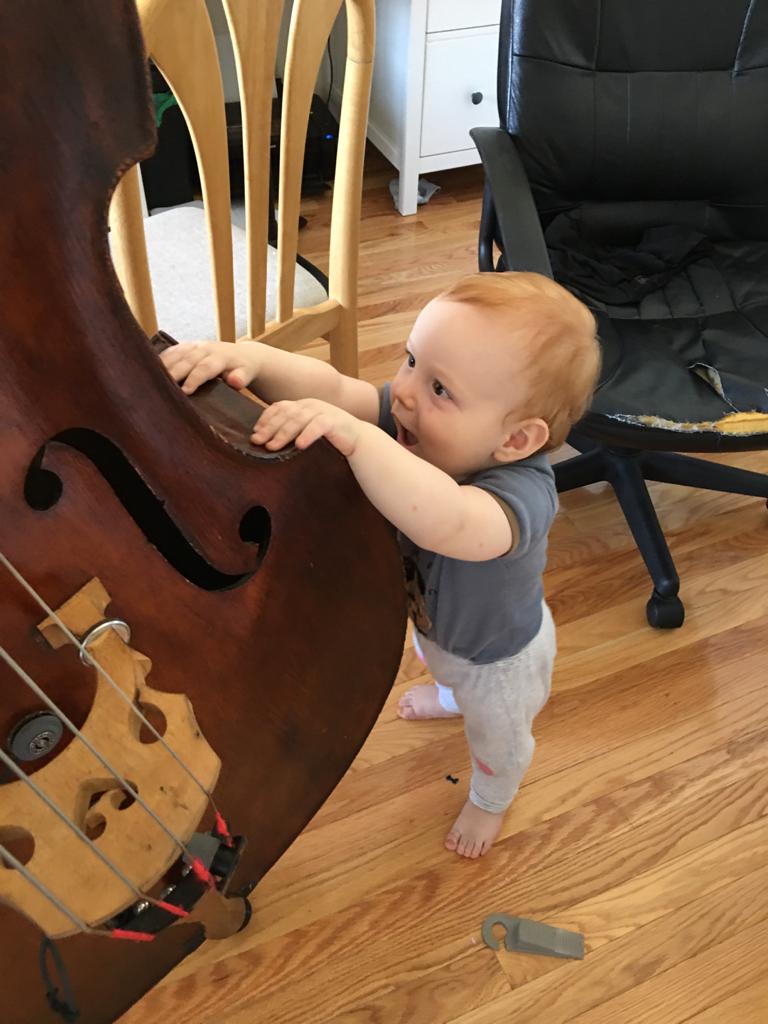 Jazz bassists stand to play pizzicato, and in continental Europe classical double bass players also play standing up, often draped over their instruments. British players, however are usually seated on stools. The stool has its own problematic issues . For a start it needs to be taken to the music venue along with the instrument – massively inconvenient on public transport. Secondly, players can’t merely perch anywhere – the stool need to be of suitable height for their frame. A petite female player will need a smaller stool than a tall, burly man. Many players also nurse personal preferences – comfort padding, back-rest, easily foldable, etc., especially in their later years.
Jazz bassists stand to play pizzicato, and in continental Europe classical double bass players also play standing up, often draped over their instruments. British players, however are usually seated on stools. The stool has its own problematic issues . For a start it needs to be taken to the music venue along with the instrument – massively inconvenient on public transport. Secondly, players can’t merely perch anywhere – the stool need to be of suitable height for their frame. A petite female player will need a smaller stool than a tall, burly man. Many players also nurse personal preferences – comfort padding, back-rest, easily foldable, etc., especially in their later years.
When our son Andrew started learning aged seven, his stool had to ‘grow’ with him. My husband James had an ingenious solution: every year he would buy the same cheap tall bar stool from IKEA , bring it home and chop its legs down to Andrew’s height. Over the years this ploy saved us money, but resulted in our kitchen becoming the repository for time expired stools for which we had to find new homes. Decades on, we continue to come across friends greeting us with a cheery, “Hey, we still have Andrew’s old 4ft stool in our garage!”
Sometime after we were married we lived for a year in Grenoble, France. James who is a keen amateur bassist joined the local symphony orchestra. I attended one of their informal afternoon concerts where the bass section was comprised of five Frenchmen who played standing, with James at the end of the line-up seated on his musician’s stool. During the performance the lady beside me pointed to him whispering, “I think it’s commendable that disabled people are being taught these big instruments”!




